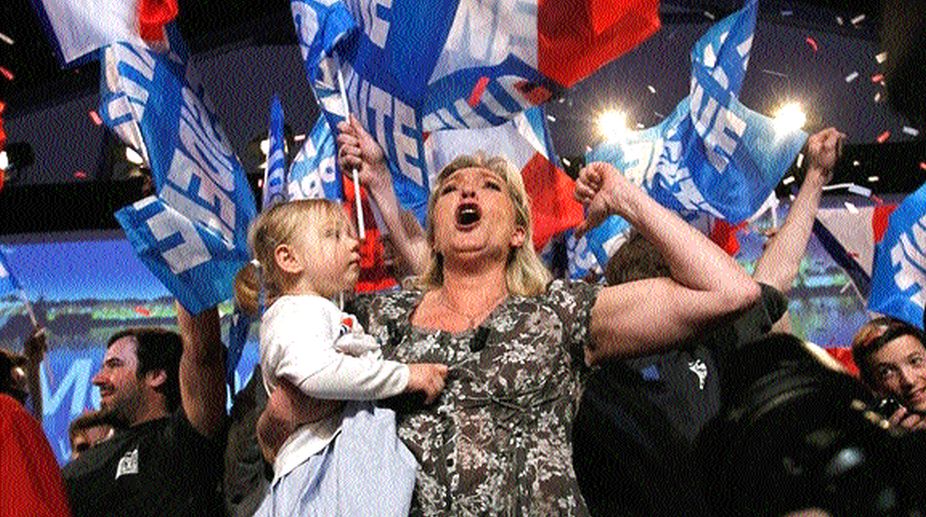Ex-French President Jacques Chirac passes away at 86
He was known for his strong stand against the American invasion of Iraq when approval rating for his anti-war stance in France soared to 90 per cent.

More important, of course, is the election in France due to take place in two rounds ending in May. France has a presidential form of government and all eyes are directed towards the presidential candidates running in the first round. France has an even longer history of strong right-wing movement, started by the uncouth nationalist leader, Jean-Marie Le Pen. The traditional coalition of parties to the right and to the left were able until now to put National Front of Le Pen behind them in the first round, exept once when National Front came in second and competed in the direct fight for presidency against Jacques Chirac of the right-wing coalition. To stop Le Pen, the entire left threw their support for the “hated” Chirac to ensure his victory. This time it is more complex. Le Pen’s daughter Marine has now taken over the leadership of the party and modernized it with somewhat broader message to attract new voters. Opinion polls show her winning the first round with about 25 per cent of the votes.
The question is: Who will be the runner-up to qualify for the direct election in the second round. There were surprises galore during the primaries of both the recently named Republicans and the Socialist camps. Early favourites on the right, Nicolas Sarkozy and Alan Juppe were soon out of the race and finally an ultra-conservative and champion of morality, Francois Fillon, became their candidate. On the left, voters in the Primary elected the left fringe candidate Benoit Hamon to run as their presidential candidate. Then the French satire magazine, Le Canard, published the damning report that Fillon emloyed his wife with huge pay as his private assistant while holding the Prime Minister’s office. Either candidate may not get enough votes of the other camp to defeat Marine Le pen in the second round. There is total confusion among traditional parties, and this led the current socialist industries minister, Emmanuel Macron, to start a new party, En Marche!, meaning “Onwards”, and run for the for the first round of the presidential election. If he makes to the second round, opinion polls show Macron defeating Le Pen by a margin of 65 per cent to 35 per cent!
Advertisement
The climax of all will be the election in Germany in early autumn. The electoral system there is very similar to that in the Netherlands. There are two major parties in Germany, the centre-right Christian Democrats CDU/CSU and the cenre-left Socialist Party SPD. Then there are smaller parties that often join coalition governments, like the Free Democrats on the right and the Greens on the left. After the unification, the Communists of erstwhile East Germany also formed a minor force in Germany. When the last SPD Chancellor Gerard Schroder made drastic cuts in social welfare programmes, many disillusioned socialists formed with the Communists a new party, called Die Linke. The party has considerable clout in the eastern part of Germany. One feature of the German eletion is the five per cent threshold, with any party failing to reach that threshhold being denied seats in the Bundestag. This was designed to stop the Nazis, after the Second World War, to enter the Parliament. But now this is going to change, with a new “post-truth” party dominated by neo-Nazis, Alternative for Germany (AfD), expected to win more than 15 per cent of the votes, according to all opinion polls.
Advertisement
This is threatening the chance of Angela Merkel to be re-elected as the Chancellor. Merkel is the leader of CDU, whose sister party CSU that represents Christian Democrats in the ultra-conservative mountain region of Bavaria is on a collision course with her. Its leader, Horst Seehofer, is against the sanction of Russia and openly supports Donald Trump. This makes the “post-truth” politics a formidable force in Germany. On the other side, SPD after Schroder suffered from lacklustre leaders. That too changed suddenly this month when the President of the European Parliament, Martin Schultz, took over the leadership of SPD, which seems to have chnrged the political base of the party. The whole of Europe is waiting.
Richard Rorty’s vision of an ideal society in a world with multiple truths are being tested in the West with the traditional politics on a collision course with the “post-truth” brand. European elections will determine the course of politics in the West for years to come. The situation is different in India. Enlightenment was imposed on us by the English educated elites. It never got diffused into our society. To this was added the post-modernist phenomenon of “post-truth”, driven by the digital hype. This is another illustration of the Bharat-India dichotomy.
(Concluded)
Advertisement